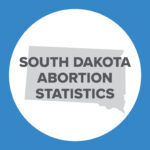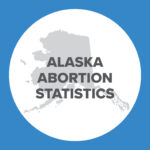Good News for Pregnant Moms Diagnosed with Cancer, and Good News for their Unborn Babies
Separation of a mother and her unborn child is tragically sometimes necessary to save the life of the mother. But the number of conditions which truly threaten the mother’s life, and which require a life-saving separation of the mother and her baby are vanishingly small. A new study by Amant and colleagues, entitled “Pediatric Outcome after Maternal Cancer Diagnosed during Pregnancy,” brings tremendous hope to pregnant women who have courageously carried their unborn children to birth, despite the need for chemotherapy or radiation therapy. [1] And the successful outcome of these children exposed in utero to radiation, chemotherapy or a combination of both is reassuring to pregnant women who no longer need be told outdated information that they must abort their children or else risk compromising their own care or their child’s life.

Prior to this study, it was thought that chemotherapy drugs and radiation would cause an increase in mental retardation or heart problems — two of the most worrisome developmental abnormalities. The Amant study, which prospectively compared pregnant women exposed to radiation therapy, chemotherapy or both with pregnant women not exposed, found that the intellectual outcomes of the children were similar, and there was no increased risk of heart problems. This is good news for both the pregnant cancer patient and her child.
One key point highlighted in the discussion was the importance of timing chemotherapy and radiation therapy according to the age of the unborn child. The first ten weeks of life, i.e., the first trimester, is the time when the unborn child’s organs form. Drugs which can damage cell growth during this critical time of organogenesis cause major damage. But by timing the radiation, chemotherapy or both for the second trimester of pregnancy, after the period of organogenesis, the potential damage from these cancer treatments can be minimized. The study of Amant et al. thus confirms observations of other researchers who also found that “administration of chemotherapy after the first trimester does not result in an increased rate or additional types of congenital malformations”.
Amant and colleagues also cited research in animal models demonstrating that the timing of cancer treatment in pregnancy is important in avoiding malformations in their offspring.[2] Two additional studies were cited in the Amant paper looking at outcomes in humans after cancer treatment in pregnancy, which confirmed the role of timing of the chemotherapy to avoid the period of organ formation.[3]
The conclusions of this research paper are of paramount importance to pregnant women diagnosed with cancer:
“In conclusion, children who had prenatal exposure to cancer and the associated stress, imaging studies and treatments, had normal development during testing at 18 months, 36 months, or both. In particular, chemotherapy had no clear adverse effects on postnatal growth or on cognitive or cardiac function. Our data suggest that diagnosis of cancer during pregnancy is not necessarily an indication to terminate a pregnancy. Although caution is always indicated, treatment of the maternal cancer in the second trimester or later may not be harmful to the fetus. Pregnant women may be informed that the likelihood of prematurity is higher than that in the general population, but among preterm babies, the child is unlikely to have unique problems more serious than those of preterm babies born of women without cancer during pregnancy.”
The fact that cancer is not an indication for termination of the pregnancy is good news for another reason as well: women with desired pregnancies who terminate their pregnancies are at much higher risk for subsequent mental health disorders such as suicide, drug abuse and major depression. These women with desired pregnancies are now freed from the pressure to abort based on outdated information about the risks of well-timed chemotherapy and radiation therapy on the baby. This research is welcome news for mothers and for their unborn children.
Donna Harrison, M.D. is a board certified obstetrician and gynecologist and Executive Director of the American Association of Prolife Obstetricians and Gynecologists (AAPLOG). Dr. Harrison is also an associate scholar for the Charlotte Lozier Institute.
[1] Amant F., Vandenbroucke T., Verheecke M., et al. Pediatric outcome after maternal cancer diagnosed during pregnancy. New Engl J Med published online September 28, 2015, updated September 29, 2015. DOI: 10.1056/NEJMoa1508913
[2] Van Calsteren K, Verbesselt R, Devlieger R, et al. Transplacental transfer of paclitaxel, docetaxel, carboplatin, and trastuzumab in a baboon model. Int J Gynecol Cancer 2010;20:1456-64; AND Van Calsteren K, Verbesselt R, Beijnen J, et al. Transplacental transfer of anthracyclines, vinblastine, and 4-hydroxycyclophosphamide in a baboon model. Gynecol Oncol 2010;119:594-600
[3] Murthy RK, Theriault RL, Barnett CM, et al. Outcomes of children exposed in utero to chemotherapy for breast cancer. Breast Cancer Res 2014;16:500; AND Luis SA, Christie DR, Kaminski A, et al. Pregnancy and radiotherapy: management options for minimising risk, case series and comprehensive literature review. J Med Imaging Radiat Oncol 2009;53:559-68
























